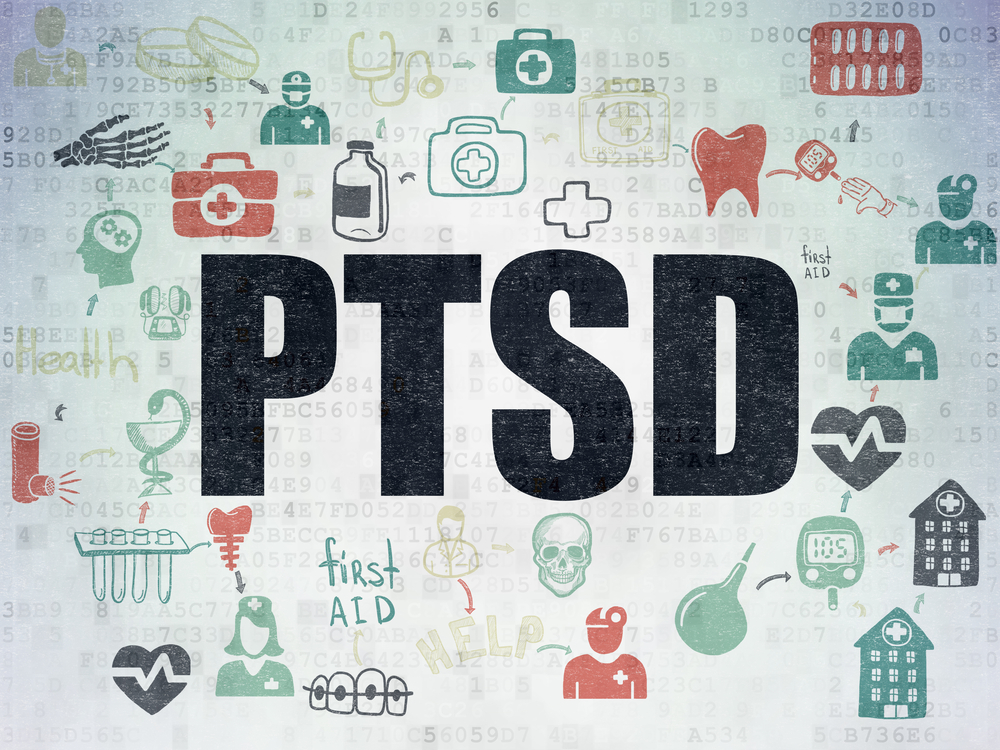PTSD Has Caused Me to Experience Avoidance

Mayo Clinic defines post-traumatic stress disorder (PTSD) as “a mental health condition that’s triggered by a terrifying event — either experiencing it or witnessing it.” Living with pulmonary hypertension and other cardiac and neurological conditions has caused my body to endure immense pain, discomfort, and bodily stress. The surgeries, emergency room visits, hospital stays, and times I thought I wouldn’t make it left lasting damage in the form of trauma.
I have been seeing a therapist for the past seven years because at times my PTSD symptoms are a lot stronger and harder to manage on my own. One of the hardest aspects of PTSD for me to manage is the avoidance symptoms. When I am experiencing avoidance symptoms, I am acting on my feelings and emotions from trauma. The Mayo Clinic states that, “Symptoms of avoidance may include: Trying to avoid thinking or talking about the traumatic event and avoiding places, activities or people that remind someone of the traumatic event.” Both of these types of avoidance influence how I advocate and take care of myself.
It has always been difficult for me to recite my medical history to doctors. I have been asked to recall conditions, surgeries, medications, and hospitalizations every single time I go to the hospital. For 23 years, before I learned the gift of self-advocacy, my mom would do this for me. She had reports, folders, and a list of my conditions. I remember sitting back, completely inactive in this part of my medical care. I always felt as though I was numb to it all. All of that changed when I decided it was time to take control of some parts of my health and when I recognized that avoiding talking about it was a symptom of PTSD.
Recalling my multiple congenital heart defects, and my spinal, neurological, and lung conditions, is still not as easy as I make it seem. What people don’t see as I’m talking about my surgeries, hospitalizations, and serious conditions is the way my palms sweat. They don’t see my heart racing as I try my best to focus on the present and to not think about the trauma that accompanied each surgery.
Talking about trauma with medical professionals still causes some anxiety, but not to the point of avoiding talking about it altogether. Something that has really helped me with this is creating a medical form to give to hospitals and other doctors on my care team. I have a few pages that include my multiple diagnoses, surgeries, doctors’ contact information, medications, and special precautions. This has relieved some of the pressure of remembering everything.
Connect with other people and share tips on how to manage PH in our forums!
For me, avoidance also looks like skipping doctor’s appointments, refusing to go to an emergency room even if I have been told it is in my best interest, and avoiding testing that may be beneficial to treatment. This type of avoidance behavior is extremely problematic when it comes to the state of my health. When I am in this mindset, trapped by PTSD emotions, and feeling frustrated, sad, and hopeless, it is nearly impossible to make a logical decision regarding the care I need.
Avoiding hospitals and testing is something that I still really struggle with. Some things have made this better for me. It helps when I write out my reasoning, even if it is completely illogical. I like to get it out on paper or via text message to a friend, therapist, or family member and then go back to it when I am in a calmer state of mind. I then am able to see the fault in my thinking and can make a logical decision either on my own or with the help of support.
PTSD is very common among those with chronic illness. Having to endure pain, discomfort, and massive amounts of stress really takes a toll on physical and mental health. Avoidance behaviors are a symptom of PTSD and can negatively impact the ability to advocate for oneself and make logical decisions. With time, it becomes easier to address the difficult emotions as they arise and recognize patterns of avoidance.
Do you suffer from PTSD and experience avoidance symptoms? Does this PTSD symptom have specific triggers? What has helped you manage it? Join the conversation in our PH forums.
***
Note: Pulmonary Hypertension News is strictly a news and information website about the disease. It does not provide medical advice, diagnosis, or treatment. This content is not intended to be a substitute for professional medical advice, diagnosis, or treatment. Always seek the advice of your physician or other qualified health provider with any questions you may have regarding a medical condition. Never disregard professional medical advice or delay in seeking it because of something you have read on this website. The opinions expressed in this column are not those of Pulmonary Hypertension News or its parent company, Bionews Services, and are intended to spark discussion about issues pertaining to pulmonary hypertension.









Leave a comment
Fill in the required fields to post. Your email address will not be published.